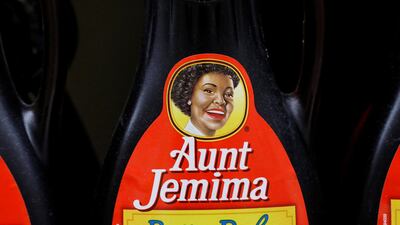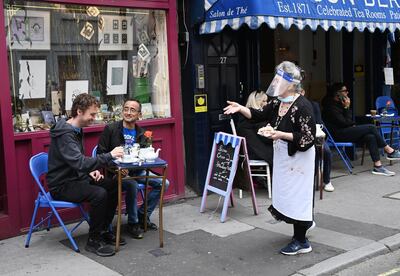When George Floyd was killed in police custody, it felt as though the world had finally begun to pay attention to racism and its devastating consequences. Brands and businesses saw this too. In the weeks of protests and statements that ensued, brands spoke up, variously condemning the killing, asserting their positions against racism and supporting the Black Lives Matter movement.
This might have been unusual even a decade earlier when companies could stay neutral. Today, brands are expected to take a stand on what is happening in the world.
Some consumers want the products they buy to toe an ethical line and for businesses to have a point of view, as do the employees of those brands. This is all well and good but now that social media posts have been pushed further down our feeds, what is next for brands? How are they expected to behave?
Consumers are often cynical about companies making any real change. They point to historic brand behaviours, where a company may declare support for a cause but move along as soon as media attention subsides.
This creates an impression that brands merely offer lip service to trending causes and then forget about them.
Take Apple and Nike, for example, among the many brands who put up messages about tackling racism. They were quickly called out by people who posted pictures of their all-white leadership teams and criticised them for not practising what they preached.
Even when brands seem to be doing the right thing, there is the problem of navigating a backlash.
In the US, the Aunt Jemima brand of syrup and pancake mix by Quaker, owned by PepsiCo, announced it would change its name and brand because they were based on racial stereotypes that date back to the era of slavery and black minstrels. It was a decision that caused some controversy.
In Arizona last month, a speaker at a rally for US President Donald Trump called Aunt Jemima a "picture of the American dream” and said that “the leftist mob is trying to erase her legacy”. The speaker's comments were received with hostility online. Brands, it would appear, are as contested in culture wars as statues.
In the UK, two popular brands, Yorkshire Tea and PG Tips, decided that the way to tackle such a backlash was to challenge it. After receiving boycott threats from a far-right critic for not declaring support of Black Lives Matter, Yorkshire Tea tweeted: "Please don’t buy our tea again. We’re taking some time to educate ourselves and plan proper action before we post. We stand against racism." In a collaborative spirit, PG Tips, weighed in with its own tweet: "If you are boycotting teas that stand against racism, you're going to have to find two new brands now #blacklivesmatter #solidaritea."
As the two-teas saga indicates, companies may have realised that this is not just about the US. Tackling racism is a global challenge. In future, big businesses are going to have to tie conscience with commercial success. And while it is important for brands to issue statements about ending racism, this alone is not nearly enough. To bring about tangible change, companies will have to make new targets, spell them out clearly and ensure that they are met. Once they do that, more people might be drawn to the brand in question, which would translate into more business.
There are possibly huge untapped consumers, who are overlooked due to a number of factors: unconscious bias, ignorance and sameness of thinking within organisations. This means missed commercial opportunities. In the UK, for example, a scathing report this year titled Rethinking Diversity in Publishing found that white, middle-class readers were considered the only audience for books. This abysmal lack of diversity is a much wider problem, explained in part by a 1000-people survey in 2017 that found 90 per cent of people in the UK's publishing industry to be 'white British'.
None of this should come as a surprise. And yet along with striving for a diversity among audience, diversity in workforces has been proven to increase commercial success.
Doing the right thing is ultimately what brings a company dividends. Last month Johnson & Johnson announced that it will withdraw its skin-whitening products. Not only is this the right thing to do — a small step to dismantling racial hierarchy — it will also free the company to create products that address the needs of consumers that increasingly demand more socially conscious brands.
One aspect that has come to the fore in the aftermath of the Black Lives Matter protests is that brands need to be honest about their shortcomings. That is how they will be able to authentically take a stand against societal ills such as racism, and progress towards creating anti-racist workplaces, products and communications.
This is not just about who is photographed in advertisements and the skin colour of models. This is about everything from equal pay to employing people from diverse backgrounds, to workforce representation, to inclusive office cultures, to representative leadership, to making products that engage with a range of consumers and diverse supply chains. This is a time when something pivotal could emerge. But only if brands recognise that hashtag solidarity is no longer enough.
Shelina Janmohamed is the author of Love in a Headscarf and Generation M: Young Muslims Changing the World



